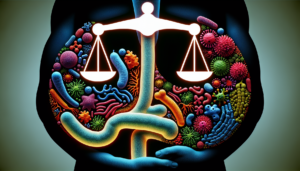How Hydration Affects Your Workout Performance
How Hydration Affects Your Workout Performance
The Importance of Hydration
Hydration is crucial for overall health, but its significance escalates exponentially during physical exercise. Water constitutes approximately 60% of the human body and plays several roles, including temperature regulation, nutrient transport, and joint lubrication. When engaging in physical activity, sustaining optimal hydration levels becomes even more critical due to the body’s increased fluid loss through sweat, respiration, and energy expenditure. Understanding how hydration affects workout performance is essential for athletes and fitness enthusiasts alike.
How Much Water Should You Drink?
The general consensus suggests that individuals should aim to consume about eight 8-ounce glasses of water per day, known as the "8×8 rule." However, the fluid needs can vary based on several factors, including:
- Body Size: Larger individuals may require more fluids compared to smaller body types.
- Activity Level: Those who engage in intense workouts or longer duration exercises will need additional hydration.
- Environment: Hot and humid conditions can increase sweat loss, necessitating greater fluid intake.
- Diet: Foods with high water content, like fruits and vegetables, can contribute to overall hydration.
A personalized approach, such as calculating fluid needs based on body weight (approximately 30-35 ml of water per kilogram of body weight), can yield more accurate results for hydration strategies.
The Biological Mechanisms of Hydration
1. Temperature Regulation
One of the most vital roles of water during exercise is thermoregulation. As you work out, your body temperature rises. To cool down, your body sweats, which evaporates from the skin surface, dissipating heat. Adequate hydration ensures that this cooling process remains efficient. Dehydration can hinder this mechanism, leading to increased body temperature, fatigue, and even heat-related illnesses, such as heat exhaustion or heat stroke.
2. Nutrient Transport and Energy Production
Water is a fundamental component for proper digestion and nutrient absorption. The nutrients absorbed into the bloodstream are transported to the muscles through water. Inadequate hydration can slow down this process, limiting the energy available during workouts, thereby diminishing stamina and performance. Glycogen, the stored form of glucose in muscles, is also dependent on water for optimal storage and usage during exercise. Dehydration can compromise energy levels, leading to decreased performance, reduced endurance, and impaired recovery.
3. Joint Lubrication
Water serves as a lubricant for joints, providing cushioning and comfort during movement. Hydrated joints can efficiently absorb shocks and resist injuries. Dehydration can lead to joint stiffness and pain, causing discomfort during high-impact activities. A well-hydrated body ensures smoother movement, enhancing workout efficiency and performance.
Effects of Dehydration on Exercise Performance
1. Reduced Endurance
Research suggests that dehydration of just 2% of body weight can cause significant impairments in endurance performance. When the body is dehydrated, cardiovascular strain increases because the heart has to work harder to pump blood. This results in an elevated heart rate and reduced blood flow to muscles, diminishing stamina and performance.
2. Impaired Coordination and Strength
Dehydration can significantly affect cognitive function and motor skills. A study published in the Journal of Sports Sciences found that even mild dehydration may result in impaired coordination, increased perception of effort, and decreased strength output. This can be especially problematic in activities that require precision and skill, such as weightlifting and team sports.
3. Increased Risk of Injury
With decreased joint lubrication and impaired muscle function due to dehydration, athletes may experience an increased risk of strains, sprains, and injuries. Hydration helps maintain flexibility and range of motion within joints and muscles, making it vital for injury prevention.
Hydration Strategies for Athletes
1. Pre-Exercise Hydration
Proper hydration should begin before the start of your workout. Aim to drink at least 17 ounces (about 500 ml) of water 2 hours before exercising. This will ensure that your body is adequately hydrated and ready for physical exertion.
2. During Exercise: Listening to Your Body
During exercise, particularly if engaging in activities longer than an hour, it’s crucial to rehydrate to replace lost fluids. Drinking approximately 7-10 ounces (about 200-300 ml) of water or electrolyte drinks every 10-20 minutes can help maintain hydration levels. Using thirst as a guide is often sufficient for light to moderate exercises, while more intense workouts may require additional focus on hydration.
3. Post-Exercise Recovery
Hydration doesn’t end when the workout does. Replenishing fluids after exercising is essential for recovery. The amount of water or sports drink you should consume post-workout is primarily influenced by the volume of sweat lost during the session. A simple method to assess hydration status is to weigh yourself before and after exercise. For every pound (approximately 0.45 kg) lost, replenish with around 16-24 ounces (about 500-800 ml) of water.
The Role of Electrolytes
Electrolytes, such as sodium, potassium, magnesium, and calcium, are vital for various bodily functions, including muscle contractions and nerve function. During intense exercise, sweat not only loses water but also valuable electrolytes. This loss can lead to imbalances, affecting performance and recovery.
1. Understanding Electrolyte Loss
During prolonged or high-intensity workouts, sweat can lead to significant electrolyte loss. For example, marathon runners can lose up to 2.5 grams of sodium an hour. Incorporating electrolyte-rich fluids or supplements can help maintain balance and enhance performance, particularly in endurance sports.
2. Sports Drinks vs. Water
Sports drinks can be beneficial for rehydration and electrolyte replacement during lengthy workouts. These beverages are designed to quickly restore both fluids and electrolytes while providing carbohydrates for energy replenishment. However, they may not be necessary for every workout, especially shorter sessions. Water typically suffices for hydration during moderate exercise durations.
Signs of Dehydration
Recognizing the signs of dehydration is essential for maintaining performance. Common symptoms include:
- Thirst
- Dark yellow urine
- Fatigue or lethargy
- Dizziness or lightheadedness
- Dry mouth and skin
- Headaches
- Muscle cramps
Monitoring urine color can be an effective and simple method to gauge hydration; a light, straw-colored urine indicates adequate hydration, while darker urine suggests the need for more fluids.
Hydration for Different Types of Workouts
1. Strength Training
Weightlifting and resistance training can also result in significant fluid loss due to sweating. Staying hydrated helps ensure that strength levels remain optimal, and muscle recovery is maximized. Consuming enough fluids before and after strength workouts is critical.
2. Endurance Training
For those engaging in longer endurance activities (such as running, cycling, or swimming), hydration plans require meticulous planning. Consuming electrolyte-rich drinks during the workout can combat the significant electrolyte loss typical of extended effort periods.
3. High-Intensity Interval Training (HIIT)
HIIT workouts can induce rapid changes in heart rate and fluid loss. Staying hydrated during these workouts can ensure that intense bursts of effort are sustainable and that recovery times remain short.
Hydration Myths vs. Facts
Myth: You Can Only Hydrate with Water
While water is essential, it is not the only source of hydration. Foods like fruits (e.g., watermelon and oranges) and vegetables are water-rich and contribute to fluid intake.
Myth: Thirst Indicates Adequate Hydration
Thirst can often be insufficient as a gauge for hydration status. By the time you feel thirsty, you may already be partially dehydrated. Monitoring urine color and fluid intake is more effective.
Myth: Caffeinated Drinks Dehydrate You
Caffeine is known to have a mild diuretic effect, but moderate consumption typically does not lead to dehydration. Caffeinated beverages can contribute to your overall hydration, especially when consumed in moderation.
Fact: Hydration Needs Vary Among Individuals
All individuals should consider their unique hydration needs based on body weight, exercise intensity, and sweat loss. Personal hydration strategies can lead to improved performance.
Conclusion
In the intricate world of exercise and hydration, maintaining optimal fluid levels is not just beneficial but essential. By understanding the significance of hydration and implementing effective strategies tailored to individual needs, athletes and fitness enthusiasts can enhance their performance, promote recovery, and overall health. Water is more than just a beverage; it is fuel for the body, particularly during rigorous physical activity. Prioritizing hydration could be the transformative element that elevates workouts from ordinary to extraordinary.








